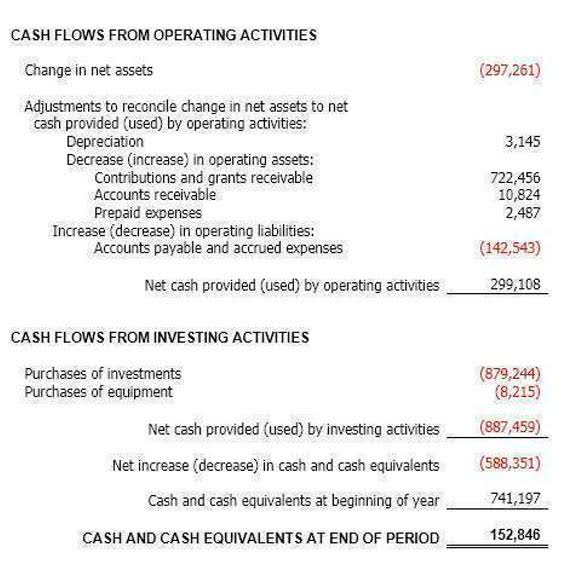
As a result, Lucy cannot accurately determine which expenses are directly related to producing cupcakes and which are necessary for running her business. The four principles of GAAP include the principle of consistency, the principle of regularity, the principle of sincerity, and the principle of full disclosure. As tax laws vary by business structure and location, make sure you check with the state and local government to determine your company’s tax obligations. Generally speaking, the two most common types of local and state tax requirements for small businesses include income taxes and employment taxes. It may not be a very fun topic, but it’s something business owners have to address—especially in terms of financial reporting. The sincerity principle states that you should provide an honest and correct picture of the company’s financial situation.
Public Companies
In short, generally accepted accounting principles (GAAP) are a set of commonly followed accounting standards and rules for financial reporting. The standards include definitions, concepts, principles, and industry-specific rules. In other words, GAAP is a collection of concepts and best accounting practices accepted throughout the industry. GAAP, or Generally Accepted Accounting Principles, is a set of standard accounting rules and guidelines that companies must follow when preparing their financial statements.

Ways to prevent financial reporting errors

During 1939 to 1959 CAP issued 51 Accounting Research Bulletins that dealt with a variety of timely accounting problems. However, this problem-by-problem approach failed to develop the much needed structured body of accounting principles. Thus, in 1959, the AICPA created the Accounting Principles Board (APB), whose mission it was to develop an petty cash overall conceptual framework. IFRS principles are issued and updated by the International Accounting Standards Board (IASB), an independent and private organization based in London.
Free Course: Understanding Financial Statements
- GAAP, or Generally Accepted Accounting Principles, is a set of standard accounting rules and guidelines that companies must follow when preparing their financial statements.
- Worker classification is important as it determines whether an employer must withhold income taxes and pay social security.
- In contrast, if cash accounting was used, a transaction would not be recorded for a while after the item leaves inventory.
- The International Accounting Standards Board (IASB) is responsible for developing and maintaining IFRS, while the Financial Accounting Standards Board (FASB) is responsible for developing and maintaining GAAP.
- For recording the transactions, the business is the entity we are concerned with.
Companies are expected to follow generally accepted accounting principles when they report their financial information. GAAP, or Generally Accepted Accounting Principles, is a set of standards and guidelines for financial accounting that are used in the United States. These standards ensure that financial statements are prepared in a consistent and transparent manner, making it easier for investors and other stakeholders to understand a company’s financial performance. The overarching goal of GAAP is to ensure that financial statements are complete, consistent, and comparable. This simplifies the analysis and extraction of useful information from the company’s financial statements, such as historical trend data, for investors. The objectivity of the basic four principles is one of the most important constraints under generally accepted accounting principles.
- Hiring a professional accounting team trained in GAAP and having internal auditors track and check finances are two ways to ensure your company is meeting GAAP standards.
- In response, the federal government, along with professional accounting groups, set out to create standards for the ethical and accurate reporting of financial information.
- However, as of June 2024, the underlying debate remains without a definitive resolution.
- Accountants complying with GAAP assume that the business for which they are tabulating financial information will remain operational for the foreseeable future.
- Essentially, this principle requires accountants to report financial information only in the relevant accounting period.
- As of June 2024, the United States has not fully adopted IFRS principles, and domestic U.S. companies remain bound to GAAP reporting guidelines.
Non-GAAP Reporting
Private companies may also follow simplified reporting guidelines under the Private Company Council (PCC). One of the key aspects of Generally Accepted Accounting Principles (GAAP) is its close working relationship with the Financial Accounting Standards Board (FASB). FASB, an independent organization, is responsible for establishing and improving financial accounting and reporting standards within the United States. By doing so, it ensures that GAAP remains relevant and up-to-date in the ever-changing business landscape.

Members of the public can attend FAF organization meetings Insurance Accounting in person or through live webcasts. Integrity Network members typically work full time in their industry profession and review content for Accounting.com as a side project. All Integrity Network members are paid members of the Red Ventures Education Integrity Network.
- More concretely, the time it would take to merge the systems and adopt a universal standard could result in financial losses that exceed the promised gains accrued through simplified standards.
- These standardized accounting principles not only provide a reliable and consistent financial reporting framework, but also ensure that their financial statements are comparable with those of other businesses.
- As a result, Matrix Inc. will report $100,000 in revenue regardless of payment receipt status.
- In the United States, these standards are known as the Generally Accepted Accounting Principles (GAAP or U.S. GAAP).
- Accrual accounting highlights the fact that some cash payments for goods or services may never be received from a consumer.
- Accountants and companies that follow GAAP are better able to provide useful information to investors and other stakeholders.
Depreciation and GAAP

If goods are transferred to the customer, or services are provided, then accounting definition revenue is recognized. If the customer has not paid, then a corresponding accounts receivable is booked, which is eliminated once the company receives cash. They use the four GAAP principles to prepare financial statements and documentation. GE should disclose its significant accounting policies in the notes to its financial statements.

